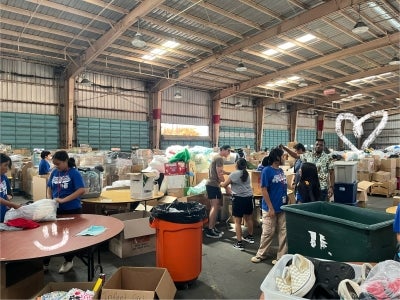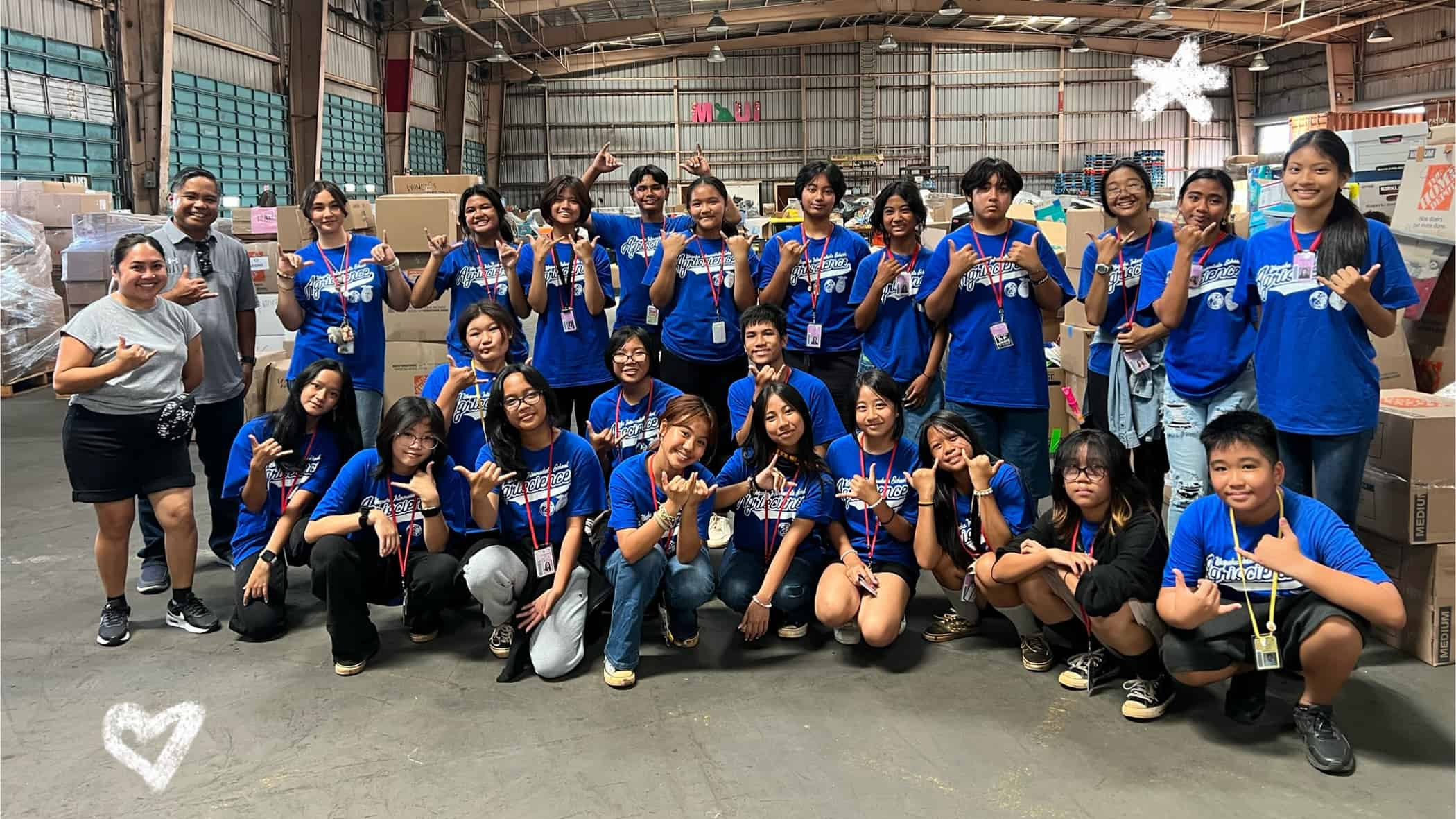In August, a wildfire ravaged Maui, Hawaii, burning 2,100 acres in Lahaina, including agricultural facilities. Amidst the destruction, Antonia Molina, 1976-77 Hawaii FFA state president, unfortunately passed away. Molina was Hawaii’s first female president and a trailblazer for other women in FFA and business.
Lending a Hand
The entire state of Hawaii is a solid and tight-knit community, so the Maui wildfire affected all Hawaiians in some way. Sean Monte, Lakeisha Quitog and Nicholas Nishimura, attendees of the 96th National FFA Convention & Expo, along with other Waipahu FFA members, volunteered a helping hand from the island of Oahu.
“I really empathize with the situation because of the hardships they go through and how they have to rebuild,” says Monte, 2022-23 Hawaii FFA state secretary. “Lahaina is such a culturally diverse and culturally important town in Maui, and it’s such a devastating thing to see.”
“Anything that devastatingly large or small is enough to affect the entire state, so I think it brought a lot of harm to a very historical place for native Hawaiians, and the Hawaiian people who ultimately ended up affecting all our lives as a whole,” Nishimura adds. “I think agriculture is going to play a very big part in how we bounce back from this.”
Many Ways to Help

FFA members gather at a distribution center to sort through donations.
Quitog says chapters were raising money for Lahaina, including a recent $600 donation from Liberty County FFA members in Georgia, but one specific chapter stood out in its efforts to help.
“They were collecting kalo leaves,” she says. “They’re really special, really cultural and have lots of meaning. Instead of raising money, they collected the heads so they could plant them in Lahaina as a way to get their mind off of it as well as give them hope and something to do.”
Rachele Lamosao, Hawaii state representative, says agricultural efforts played an important role in helping Maui rebuild. Waipahu FFA hosted a donation drive that collected clothes, toys and food for those in Lahaina.
“Last month, we went to the distribution center, and we were able to sort through all the donations we received, which was abundant and awesome to receive,” she says.
Although Hawaii FFA members are all coming together to help those in Maui, Monte, Quitog and Nishimura all said non-FFA members in Hawaii are also willing to step up.
“We’re doing as much as we can — just as much as the next person who is not in Hawaii FFA,” Monte says. “It’s just an amazing thing to see unity through adversity.”
“What differentiates the FFA students is that they fight for the future using agriculture,” Nishimura adds. “They care about a future in which Hawaii goes back to its agricultural roots where it will become food-sustainable again.”
The Aloha Spirit
Representative Lamosao says there is still work to be done in Hawaii, but a lot of funding will be dedicated to the recovery of Maui.
“We put others before ourselves,” she says. “I think a lot of the FFA chapters can truly learn from the values we carry in Hawaii, with aloha being the main one [a spirit of grace and kindness] and the main value.”
In the midst of it all, Hawaii remains resilient during these times because of their aloha spirit. As it unites to help Maui, Nishimura says the entire state is like one big family.
“Aloha is in everything that we do,” she adds. “If you put aloha into your work and aloha into your land, you can get abundantly more than you ever imagine and expect.”












